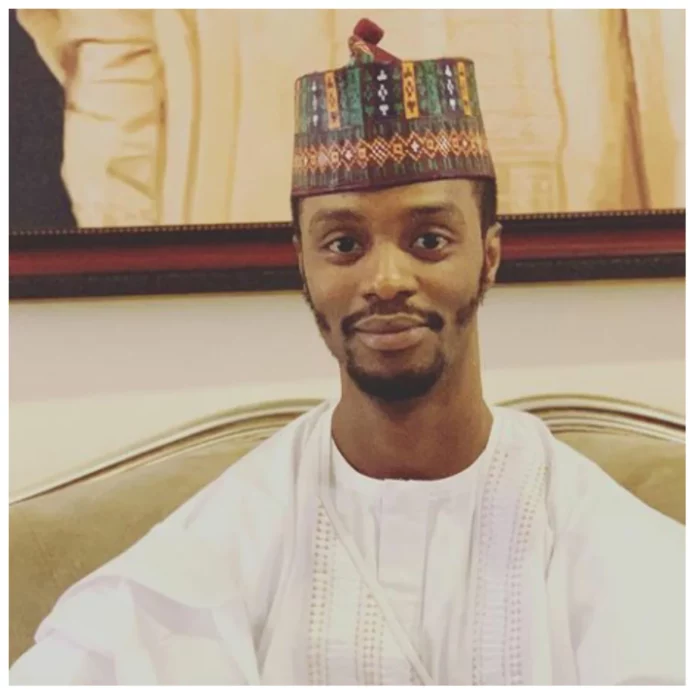A tweet by Bashir El-Rufai, son of the former Governor of Kaduna State, Mallam Nasir El-Rufai, has triggered a wave of controversy and fear across social media. In the tweet, which has since gone viral ,Bashir made a provocative comment directed at the people of Southern Kaduna.
The tweet reads: “It is your stupid mother that is an elephant. And Southern Kaduna residents will keep seeing shege if they continue to attack indigenous Fulani herdsmen. Oloshi.”
The words used by Bashir El-Rufai, widely seen as a threat, have reignited long-standing tensions in the region between indigenous Southern Kaduna communities and Fulani herders. The term “shege” in Hausa slang refers to violence or chaos, and it has come to symbolise the kind of clashes and disruptions many communities in the region have endured due to violent conflicts over land and cattle.
Southern Kaduna, a region in north-central Nigeria, has been the centre of many violent conflicts, especially between local farmers and herders, most of whom are Fulani. The conflicts, which often result in loss of life, destruction of property, and displacement of communities, have been a major concern for both the local government and the federal authorities for years. These violent incidents often escalate after attacks by armed Fulani herdsmen on farming villages, sometimes leading to retaliatory violence.
Bashir El-Rufai’s tweet comes at a time when there is already heightened insecurity in the region. Over the years, Southern Kaduna has been witness to frequent clashes between herders and farmers, which are often rooted in competition for resources such as land and water. In some cases, these conflicts have taken on an ethnic and religious dimension, as the predominantly Christian farmers in Southern Kaduna clash with the mostly Muslim Fulani herders.
The tweet has raised concerns about the potential for further violence, especially given the volatile nature of the situation in the region. Many residents of Southern Kaduna have expressed their anger and fear over Bashir’s words, seeing it as an endorsement of the violence that has plagued their communities for years.
The history of conflict in Southern Kaduna dates back several decades, with the primary issue being access to land. Farmers in Southern Kaduna accuse Fulani herders of destroying crops and causing economic hardship through their cattle grazing. On the other hand, Fulani herders say they are being denied access to traditional grazing routes and water sources for their cattle, leading to tensions and clashes.
Over the years, there have been numerous reports of violence. According to a 2020 report by the International Crisis Group, Southern Kaduna has experienced some of the worst ethnic and communal violence in Nigeria, with hundreds of people killed in clashes between the herders and farmers. The Nigerian military has been deployed to the region to try and restore order, but the violence has persisted.
In addition to the economic and environmental factors, religion has also played a role in fuelling the violence. Many of the indigenous farming communities in Southern Kaduna are Christian, while the majority of the Fulani herders are Muslim. This divide has often led to the perception that the violence is not just about land or resources, but also about religious differences.
Bashir El-Rufai, the son of Mallam Nasir El-Rufai, a former governor of Kaduna State, is no stranger to controversy. He has been vocal on social media about a variety of political and social issues, often stirring debates with his blunt and provocative remarks. His recent tweet has brought attention not only to his views on the situation in Southern Kaduna but also to the ongoing conflict between the Fulani herders and the local farming communities.
Many critics argue that Bashir’s words are irresponsible and could lead to further escalation of the violence in Southern Kaduna. A political analyst, Mr. Idris Abubakar, pointed out that inflammatory rhetoric from public figures could undermine efforts to promote peace in conflict-prone areas. “Bashir is not helping the situation. His words are not constructive. If anything, they will make it harder for peace to return to Southern Kaduna,” he said.
However, some supporters of Bashir argue that his comment was a defence of the Fulani herders, who they believe have been unfairly targeted in the past. For them, Bashir’s tweet is a call for respect for the rights of herders to live and work in the region without fear of attacks.

